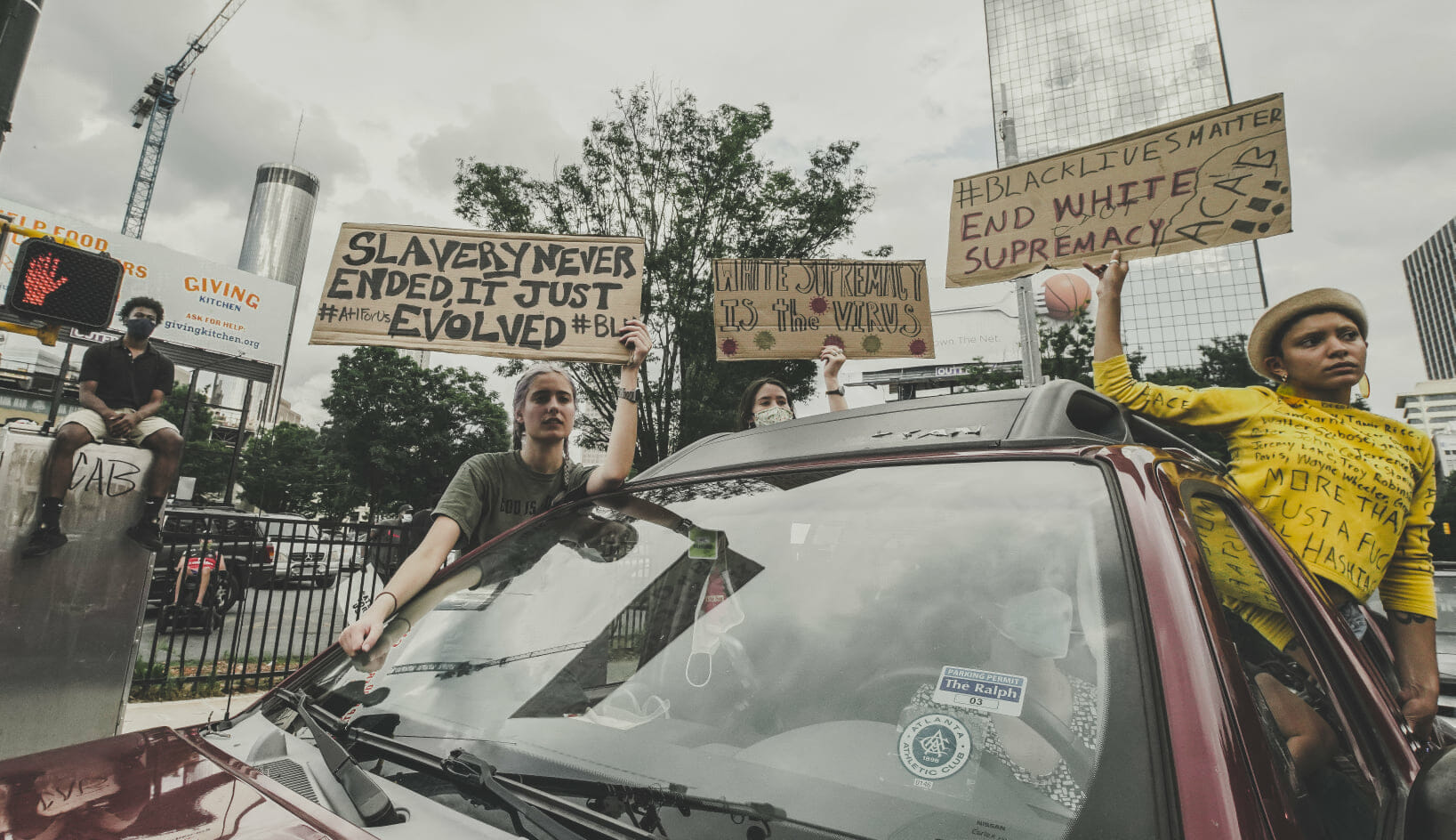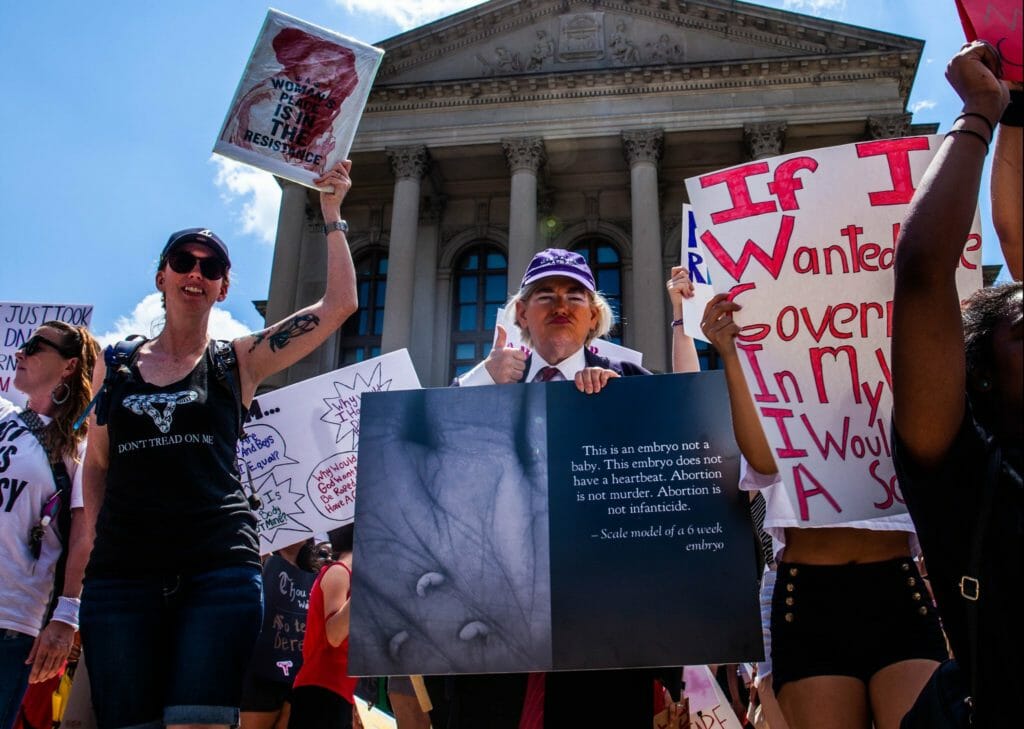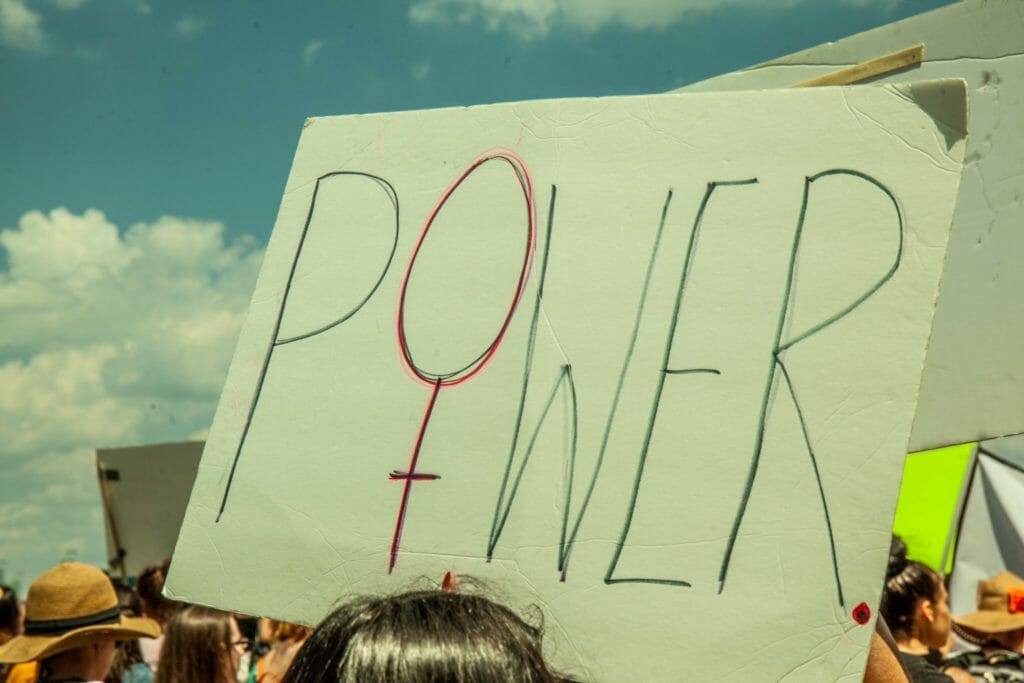This piece was co-authored by Aja Arnold, Lizzie Booher, and Victoria Kidd
Another bill aimed to criminalize Black and Brown communities in Georgia currently sits on Kemp’s desk—and it’s just one piece of many in the puzzle of systemic racial oppression in the state

Editor\’s note: SONG Atlanta recently started a petition for citizens to sign to express their opposition to SB 402 and HB 838, along with other calls to action to contact the Governor\’s office. That petition can be found here.
As the Black Lives Matter continued to ensue in Georgia and across the nation, the Georgia General Assembly reconvened the week of June 22 to continue its annual legislative session which saw the passing of the state’s fiscal year 2021 budget and other new pieces of legislation. Among them was SB 402, which currently resides on Gov. Kemp’s desk, awaiting his signature to either approve or veto the law. It is one of several bills aimed in the state’s attempts to further harm, criminalize, and oppress Black communities in Georgia, alongside the Republicans’ “anti-voting rights bill” SB 463 and HB 838, which seeks to further establish the police, who are considered first responders, as a protected class in state law.
SB 402 specifically aims to criminalize the poor in the matters of due process and bond procedures in the criminal justice system.
When a person is arrested, they are brought to a jail or detention center where they are held until a trial is set. They are in what is called “pretrial detention” which, for a variety of logistical reasons, can last indefinitely. It can take days, weeks, or months to set a trial date, and even longer to actually appear in court as the trial date is repeatedly postponed. During pretrial detention, the person has not been convicted of any crime; they have not been proved guilty, and are therefore, in theory, innocent. However, they remain detained, unable to be with their loved ones or earn an income.
Pre-trial detention is responsible for two-thirds of the incarcerated population in the United States, and plays a crucial role in the maintenance of the prison industrial complex. Shareholders invested in U.S. jails continue to reap profits off of the backs of incarcerated individuals through this version of legalized slavery. All pretrial incarcerated individuals are, by law, innocent.
The bond process allows individuals in pretrial detention to live their lives out of detention as they await their trial.
In February, the Georgia State Senate introduced new bill SB 402 that will restrict the bond options available for a person in pretrial detention. The bill was passed by the Senate on March 3 and later adopted by the House on June 26, the last day of Georgia’s annual legislative session. The bill was sent to Gov. Kemp’s desk on June 29 and as of today, July 5, the passed legislation currently awaits Kemp’s signature to either be approved into law or vetoed.
There are four ways to get out of jail once you’ve been detained in the state of Georgia: cash bond, property bond, surety bond, and signature bond. Cash bond is the simplest and fastest way to get out of jail, assuming the defendant has enough cash to pay the entire bond. Property bonds favor those who own property and under the law, the “owner of the property must have equity in the property equal to or greater than twice the amount of the bond.” Surety bonds ensure that the defendant can contact an outside bail bond agent, friend, or relative to post bond once the amount has been determined. And lastly, signature bonds — also known as “own recognizance” — offer another option to judges when considering bonds and releasing offenders for the pre-trial period. Under state law, judges are to consider the “nature of the charges, any criminal history, and the connection to the county where the arrest occurred.” Further, the defendant could also then be responsible for reporting to a county-run pre-trial release program to ensure the conditions of the OR are being met.
Signature bonds are vital to due process rights for those who are not able to qualify for the other three bond options available to offenders, which could all be met through certain means of privilege and monetary means. Long story short, signature bonds are an option for those who do not have enough cash to post bonds and do not own property. It provides another option to judges to ensure that those in poverty are not further punished for simply not having the means to buy their way out of jail.
In addition to violating the “innocent until proven guilty” legal principle that is supposed to guide the legal process in the U.S., there is a clear distinction between who will be affected by this bill and who will not. Those who can afford to pay for their release will do so, meanwhile those who cannot will be forcibly jailed for the same offenses.
The introduction of SB 402 is an attempt to eliminate signature bonds as one of the means of release from pretrial detention, narrowing the choices to the previously mentioned forms of secured bonds or indefinite detention. If SB 402 is signed into law, it would effectively eliminate this option for judges in their ruling and inevitably funnel more people into pre-trial detention. In so doing, this would be another facet of the largely cast web of systemic oppression in Georgia against poor communities; and yes, when we say poor communities we mean Black and Brown communities, as noted by ACLU GA in their official opposition statement, because it is those who have been pushed into poverty through the actions of our own government.
The history of segregation in Georgia — in its most modern iterations of redlining, destruction of public housing, and housing loan discrimination towards non-white families — has systematically set up Black and Brown communities to have drastically lower average wealth in comparison with white communities.
These systems didn’t just begin in recent years, and it’s not just in Georgia. New York City lawmakers have used the legal powers of eminent domain to destroy thriving predominantly Black communities since the 1850s, when they forced Black communities out of their homes to build Central Park. The U.S. government has used redlining, a housing program that was spawned under the New Deal in the 1930s, as a “state-sponsored system of segregation.” The Federal Housing Administration justified discrimination, claiming that loans to African Americans would be at risk, citing no real basis for this claim. The GI Bill, which promised prosperity to American veterans, was denied to a million Black WWII veterans. And 65% of the African American workforce was excluded from the initial Social Security program as established in 1935. Many of these workers were covered later on when Social Security expanded in 1950, but not all.
All of this to say that the moves the American government has made to keep Black Americans marginalized and deny them opportunities to wealth and prosperity in this “free” country are vast, strategic, and long-running.
If SB 402 is passed we will see yet another continuation of systemic racism in Georgia. Our jails will be even more full of Black and Brown folks awaiting trial and losing homes, jobs, and family connections in the meantime. This will invariably perpetuate wealth disparity that will feed back into the cycle of pretrial detention, simultaneously extending the systems of mass incarceration, prison industrial complex, and the school-to-prison pipeline.
Aside from signature bonds, the only option for many people facing indefinite incarceration is to seek assistance from the bail bond industry, a $2 million industry that profits from perpetuating debt within criminalized communities. Folks are pushed into debt for their freedom when they are forced to seek bail bonds. Without bail bonds many will remain incarcerated in pretrial detention indefinitely, rendering them unable to work and therefore furthering the cycle of poverty. Without signature bonds as an option, the choice for those arrestees is between two different forms of financial oppression. This bill prioritized the predatory prison industry over people and their right to due process.
This, along with Kemp’s new “gang activity bill,” HB 994 — which aims to criminalize children between ages 13 and 17 with new crimes vaguely added in the legislation — would be massive blows in ensuring that systemic racism and white supremacy can continue to reign in Georgia. HB 994 passed in the House in March, but did not make it through the state’s most recent legislative session.
Not only do incarcerated individuals experience a steady decrease in their financial resources, but the experience of incarceration comes with a set of other vulnerabilities. The Bail Project states that the risks of incarceration include sexual violence, insufficient physical and mental health care, and chronic Post-Traumatic Stress Disorder (PTSD) as a result from jail administration staff. Often individuals in pretrial detention feel forced to accept a plea deal and say they are guilty to be able to go home, regardless of whether or not they are truly guilty of the crime they are charged with. The vast majority of federal cases do not make it to trial due to the ubiquity of this practice. With a charge on their record, even without a real shot at due process, released individuals have opportunities closed to them left and right, including jobs, housing, and educational resources.
SB 402 is currently sitting on Governor Brian Kemp’s desk, awaiting his approval. Now is the time to flood his office with emails and voicemails expressing your opposition to this bill. We demand that Gov. Kemp veto this bill upon his return from the holiday weekend, to give all Georgians the autonomy, rights, and freedoms they deserve, regardless of race or income. And it is one of the many steps we need to take to begin to unravel the systemic injustices slated against Black Americans since our nation’s inception




